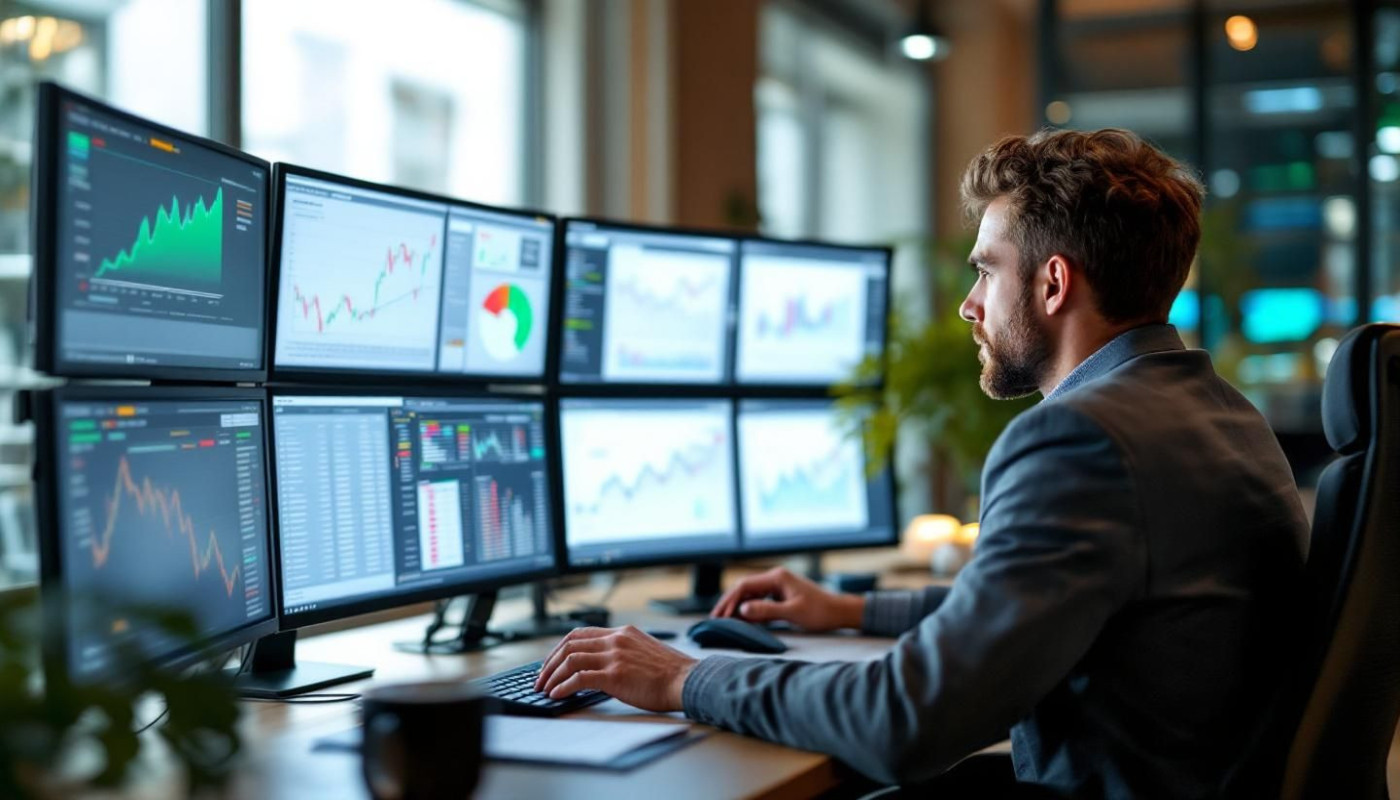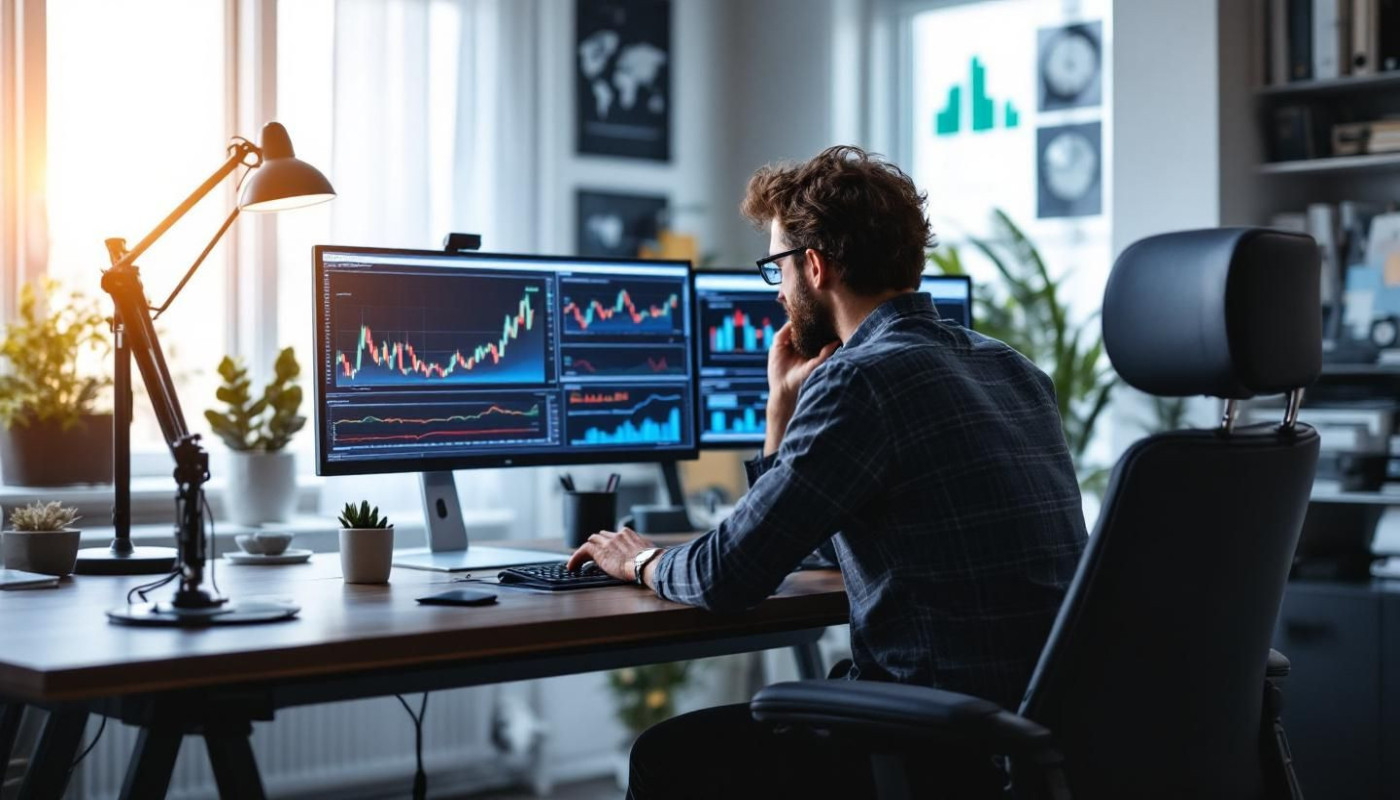Table of contents
The French wine industry is an alluring sector to venture into for investors, brimming with rich history and global prestige. The vineyards across the regions of Bordeaux, Burgundy, and Champagne among others produce some of the world's most coveted wines. However, investing in this sector isn't just about buying bottles of grand cru; it requires a thorough understanding of the market dynamics, regulations, and potential risks. And although the initial investment may seem substantial, the potential returns can be equally lucrative. Delve into the world of viticulture and enology, as we explore the essential aspects of investing in the French wine industry.
Understanding the French Wine Market
The French wine market is a dynamic entity, anchored by prestigious viticulture and enology traditions. It is steeped in a rich history and holds a promising future. The current state of the market is robust and thriving, with significant growth potential. Key wine-producing regions, such as Bordeaux, Burgundy, and the Rhône Valley, account for a substantial portion of the market, dominated by leading players like Louis Roederer, Domaine de la Romanée-Conti, and Château Margaux.
Several factors influence the price of French wines. The vintage, or year of harvest, plays a pivotal role as it impacts the quality and quantity of the grapes harvested. The concept of terroir, which encompasses the environmental conditions where the grapes are grown, including soil, climate, and topography, significantly affects the flavor profile and thus the value of the wine. Furthermore, the reputation of the wine estate can greatly influence the price, with renowned estates commanding higher prices.
Wine auctions and wine critics also play a notable part in the French wine market. Wine auctions serve as a platform for wine enthusiasts and investors to acquire rare and valuable wines, often driving up the prices of certain vintages or producers. On the other hand, wine critics' ratings and reviews provide guidance to buyers, influencing their purchasing decisions and, indirectly, the prices of wines.
For more insights from a seasoned wine industry analyst or a wine investment consultant, click to read more.
Navigating Through Regulations
The French wine industry is governed by a set of strict regulations that determine various aspects of wine production, sales, and trade. One such regulation is the Appellation d'Origine Protégée (AOP), which guarantees that all wines under its designation are produced in a specific geographical area, using recognized and traditional methods. This not only protects the reputation of the region but also ensures the quality and authenticity of the wine.
Besides AOP, there is also the Vin de France designation. This system allows winemakers more flexibility in terms of blending and labelling since it doesn't require the wines to be sourced from one specific area. Yet, it still adheres to rigorous standards to maintain the overall quality of French wine.
When it comes to international trade of these wines, certain laws and political factors come into play. For instance, tariffs imposed by different countries can significantly affect the export and import of French wines. Similarly, trade agreements also play a crucial role in shaping the wine market. Any changes in these tariffs or trade agreements can consequently impact the profitability of investing in the French wine industry.
Given the complexity of these regulations and their potential impact on business operations, seeking advice from a wine industry legal expert or a professional in regulatory affairs would be a wise move for any potential investor.
Factors to Consider for Wine Investment
Investing in French wines can be a rewarding endeavour, though it necessitates a comprehensive understanding of several key investment factors. A paramount consideration is the standing of the wine estate, as an estate with a strong reputation invariably produces wines with a high appreciation potential. Another important aspect is the vintage quality, which refers to the year the grapes were harvested. The quality of the vintage is often a direct reflection of the weather conditions during the growing season, and can significantly influence a wine's value.
Additionally, gauging the market demand is vital. Recognizing trends, like shifts in consumer preferences, can help in making informed investment decisions. For example, the popularity of organic wines has grown exponentially over the last few years. Wine investment factors also include practical elements such as wine storage and insurance. Proper storage is imperative to maintain the wine's condition and, by extension, its market value. Equally significant is securing wine insurance to safeguard your investment from unforeseen situations such as theft, breakage or spoilage.
Climate change is another factor that cannot be overlooked. Increasingly unpredictable weather patterns can affect the quality of the grapes, and hence, the wine produced. These changes in climate can pose risks but also opportunities for savvy investors. A sommelier or a wine investment advisor can guide you through these complexities and help in making the right investment decisions. Their expert knowledge of the industry proves invaluable, making their counsel a key component of successful wine investment.
Investment Options in the Wine Industry
When it comes to investing in the French wine industry, some prevalent methods include buying wine futures, investing in wine funds, purchasing shares in wine companies, or even owning a vineyard. Each of these methods has its advantages and potential pitfalls, which a financial advisor with expertise in wine investments can guide you through.
Wine futures, also known as En Primeur, is an investment method where you purchase wine while it is still in the barrel, long before it is bottled and released in the market. This approach can yield significant profits if the wine's value increases over time. However, it also carries high risks because the quality of the wine can be impacted by numerous factors such as weather conditions and the winemaking process itself.
Investing in wine funds is another option. These funds, operated by finance professionals, collect capital from various investors to buy, store, and eventually sell fine wines. This allows investors to diversify their portfolio without needing extensive knowledge about wines. Nonetheless, it's important to note that these funds often require a substantial initial investment and may charge hefty management fees.
Purchasing shares in wine companies is a more traditional method of investing. This could entail buying stocks in wineries, distributors, or businesses involved in wine production. While relatively safer, this investment type is dependent on the company's financial performance and broader market trends.
Lastly, buying a vineyard is a direct route to owning a piece of the wine industry. This could be a profitable venture as you gain control over the wine production process from start to finish. However, it requires significant capital, expertise in wine production, and willingness to take on the risks associated with farming.
Assessing the Risks and Returns
Every savvy investor understands that with potential profits come potential risks. This holds true for wine investment as well. The key risks associated with investing in the French wine industry are market volatility, poor harvests, and counterfeiting. Market volatility can lead to unpredictable fluctuations in the price of wine. Understanding and tracking market trends can aid in mitigating such risks.
Poor harvests, on the other hand, are a unique challenge. Vintage variation, a term often used in the wine industry, refers to the quality and quantity of wine produced in a particular year. Factors like weather conditions, pests, and diseases can significantly affect the harvest, leading to vintage variation. A bad year can result in poor quality wine, which can drastically reduce the value of your investment.
Counterfeiting is another substantial risk in the wine industry. Counterfeit wines are replicas of valuable wines, created to deceive investors and collectors. These fake products can severely impact the reputation and financial returns of genuine wine producers, and by extension, the investors.
Having discussed the risks, it is equally crucial to understand the potential returns of wine investments. Factors such as the rarity of the wine, its age, the reputation of the vineyard, and global market trends can greatly enhance the value of your wine investment. Therefore, it is always advisable to consult with a financial advisor with expertise in wine investments or a wine economist before investing in the French wine industry. They can provide valuable insights about the potential returns and risks, helping you make an informed decision.
Similar articles

What Drives Investors To Buy Significant Shares In Companies?

Unlocking The Secrets To Identifying Lucrative Investment Opportunities

Essential Tips For First-time Buyers Of Used Boats

Unveiling the Secrets of Cryptocurrency: Beyond Bitcoin

Green Bonds: Financial Markets Driving Sustainability

Transforming Waste to Wealth: The Rise of Upcycling

Unmasking the Crypto Craze: A Deep Dive into Digital Currency

The Economic Impact of African Players in the Premier League

Exploring the Transformation of Luxury Retail in the Digital Age

